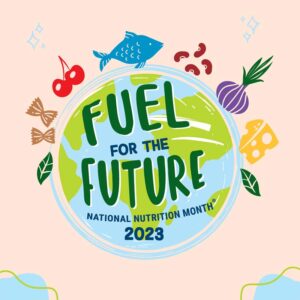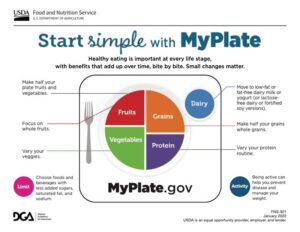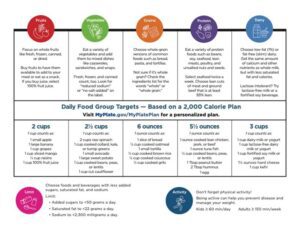March is National Nutrition Month, a great time to discuss the importance of good nutrition and healthy eating habits. Eating nutritious foods and practicing healthy lifestyles are key to our overall health and well-being. Making smart food choices can be fun and essential for developing a strong body and mind to manage our daily lives better! At NAFC, we recognize the importance of good nutrition on overall health and the issues facing access to healthy foods for so many. Learn more about nutrition, National Nutrition Month, and how NAFC and its members can help!
A Look at National Nutrition Month
 National Nutrition Month, recognized annually in March, is an important time to think about our eating habits and work toward creating healthier lifestyles. National Nutrition Month is dedicated to raising awareness about making informed decisions when it comes to our diets and overall health.
National Nutrition Month, recognized annually in March, is an important time to think about our eating habits and work toward creating healthier lifestyles. National Nutrition Month is dedicated to raising awareness about making informed decisions when it comes to our diets and overall health.
This National Nutrition Month reminds us that small changes to food choices and physical activity can help improve our health and well-being, regardless of age. National Nutrition Month encourages us to recognize the importance of what we eat and how it influences our quality of life, providing us with resources and tips to help us navigate food choices.
Benefits of Eating Nutrient-Dense Food
National Nutrition Month is the perfect time to focus on the advantages of eating nutrient-dense foods. Nutrient-dense foods provide an impressive range of essential vitamins, minerals, macronutrients, and antioxidants. Eating these foods regularly can encourage a healthy diet, boost immunity, and help prevent disease and ailments.
In addition, nutrient-dense foods are usually low in calories yet packed full of essential vitamins, minerals, amino acids, and fatty acids our bodies need for normal growth and development. They can even help us achieve ideal body weight goals because they take longer to digest than more processed options. So this National Nutrition Month, make sure you’re eating nutrient-dense food as part of a balanced diet for optimal health!
Tips to Incorporate Nutrient-Dense Foods into Your Diet
National Nutrition Month is also a great reminder that it’s important to ensure we get the right combination of nutrient-dense foods when we eat. Eating a variety of foods from each food category will help you get all the essential nutrients your body needs for optimal health.
Start by stocking your pantry with items like:
- whole grains
- fruits and vegetables
- nuts and seeds
- low-fat dairy products
- lean proteins
- healthy fats
When grocery shopping, look for items with fewer additives and more vitamins and minerals, such as fortified breakfast cereals or tuna in water instead of oil.
Also, swap out processed snacks for fresh veggies and hummus or cut-up fruit with a few nuts on top. With everything from sandwiches to tacos to smoothies — there are endless ways to incorporate healthy choices into your diet!
Benefits of Making Healthy Choices Every Day
This is a great time to highlight the benefits of making healthy choices every day. As National Nutrition Month reminds us, a balanced, nutrient-rich diet helps fuel your body and energize you throughout the day. Regular physical activity has numerous advantages, from improved heart health to increased immunity.
Maintaining a healthy lifestyle has a positive effect mentally as well, including better concentration and overall mood. Healthy habits can help lay the groundwork for long-term physical and psychological well-being, so take small daily steps toward making smarter nutritional decisions for yourself and your family.
Strategies for Eating Healthily on a Budget
Eating healthily on a budget can be challenging; however, there are various strategies that make healthy eating possible. To start, try planning meals ahead of time and considering the costs of ingredients.
Remember that buying in bulk or opting for generic products may be cheaper when grocery shopping. Additionally, minimizing food waste by using leftovers can help save money while also providing healthy meals. Finally, checking local stores for discounts and bargains may lead to foods with higher nutritional value at lower prices. With these simple strategies, National Nutrition Month is the perfect opportunity to create nutritious meals without breaking the bank. For more information and resources on healthy eating on a budget, visit www.myplate.gov.
Addressing Food Insecurity
Food insecurity is a major issue in the United States. In 2021, it affected over 33.8 million Americans each year. This means that out of around nine households, one does not have consistent access to enough nutritious food for an active and healthy lifestyle.
Food insecurity disproportionately affects specific segments of the population, including racial minorities, low-income families, and those living in rural areas. For example, Black, Hispanic, and Indigenous communities report higher rates of food insecurity than White non-Hispanic households in America. Children are especially vulnerable to food insecurity as over 5 million children do not always have enough to eat, which can lead to poor health outcomes, lower academic achievement, and greater risk for poverty and hunger later in life.
The cause of this crisis is complex but can be attributed to increasing income inequality, inadequate wages, rising housing and healthcare costs, the need for increased social safety nets, and an overall lack of investment in our nation’s anti-hunger programs such as SNAP (formerly known as Food Stamps).
Fortunately, many nonprofit organizations, including free and charitable clinics, are working hard to combat the issue of food insecurity in America by providing meals through school breakfast/lunch programs or pantries/food banks which offer groceries and other staples like meat or eggs at no cost or a reduced price. Additionally, federal nutrition assistance programs provide much-needed assistance to people facing financial hardship who cannot afford enough nutritious food.
An Overview of National Nutrition Month with NAFC
We recognize the need to make healthy food choices and the nutritional and financial impacts during this National Nutrition Month and throughout the year. Making healthy decisions every day can have countless benefits, including improving overall well-being. Eating healthily on a budget is achievable with some planning and strategies to reduce food waste and lower reliance on unhealthy processed options. Finally, there are reliable resources available when it comes to looking for healthy eating information.
At NAFC, we work to serve the uninsured & underserved with the healthcare they need; through our programs & partnerships, we strive to build healthier communities every day! We recognize the major issues so many people face when it comes to accessing healthy foods, and while there are many trying to address it, there is still a long way to go before we solve this problem completely. It is important for us all to take action because together, we can create positive change for those facing food insecurity across our country. To learn more and locate a local clinic, please visit our website and contact us today!


